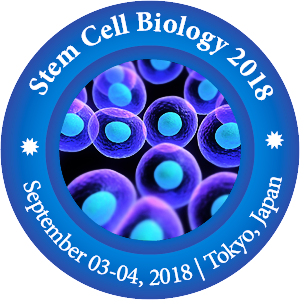
K. S. Sidhu
Professor at UNSW Medicine, Centre for Healthy Brain Ageing, UNSW, Sydney, Australia
Title: Patient-derived Induced Pluripotent Stem Cells Technology towards modelling Alzheimer’s disease.
Biography
Biography: K. S. Sidhu
Abstract
Dementia is the third most leading cause of death after heart disease and stroke. Huge economic impact, in 2010, 604 billion dollars spent worldwide and now 818 billion in 2015 and would be 2 trillion in 2030 because of no cure. Alzheimer’s disease is represented in majority of dementia patients and characterized by the progressive loss of specific cholinergic neurons in the brain, which leads to gradual loss of bodily functions, long term memory loss and eventually death. The pathology of AD remains elusive due to the lack of appropriate animal and/or in vitro models, which recapitulate the human AD. The induced pluripotent stem (iPS) cells derived from patient's somatic cells and thus patient specific and disease-specific iPS cells offer great potential in regenerative medicine, in drug discovery and modelling disease processes in vitro. We report here the first generation of feeder-free iPS cells from Alzheimer's patient with an early onset of disease. These cells are produced by using a polycistronic lentiviral vector containing four pluripotent genes, Oct4, Sox2, Klf4 and cMyc. These iPS cells are pluripotent as demonstrated by both the in vitro and in vivo assays. These iPS cells have been analysed by using the microarray chip and the computation of data is assisting in developing the in vitro models for this disease and for future regenerative medicine. Genome-wide microarray analysis revealed that AD-iPS cells are similar to control iPS cells and hESC lines; however, eight candidate genes differentially expressed between familial iPS cells and sporadic iPS cells. These cells exhibit disease-specific phenotype when cultured & differentiated to relevant neurons in vitro and when coaxed with specific inducers/stressors. These phenotypes could be ameliorated by using some anti-inflammatory drugs. The data indicated that it is possible to model disease in vitro and developing future therapeutics using these cells.

